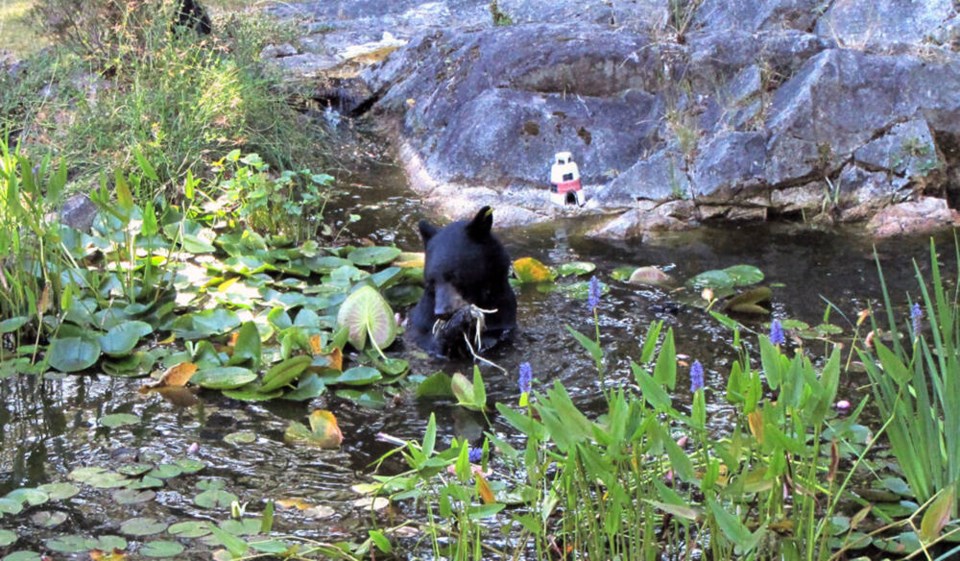As the North Shore’s black bears wake up from their long winter’s nap, wildlife advocates are calling for humans to clean up their acts and their yards.
“There’s quite a few (bears) that are awake and wandering around. They seem to vary in age from yearlings to some that have been described as very large,” said Christine Miller, acting executive director of the North Shore Black Bear Society. “The keyword is ‘coexistence'… Just being aware of natural behaviour of the wildlife and how to give them respectful space and how to not attract them is our dream.”
In 2022, there were seven bears killed on the North Shore and in Lions Bay, either by conservation officers or after being struck by drivers on the roads.
Miller said bear activity will only pick up in the weeks ahead as mothers with cubs emerge from their dens, adding it’s time now to start taking precautions that reduce the likelihood of them being put into conflict and danger.
Attractants around homes are a perennial issue, she said.
“We’ve had too many bird feeders available to them. People get excited about feeding birds during the winter, and consequently, don’t take them down,” she said.
Miller said she hasn’t had many reports of bears getting to garbage or compost carts yet this year, but she said now is the time to start freezing our more odorous organics until collection day and ensuring there aren’t any food scraps going into the regular garbage bins.
“That’s a huge problem for the bear population because the garbage is picked up later in the day,” she said.
The Black Bear Society is also encouraging residents who can’t store their organics bins in a garage or shed to at least find a way to secure them upright with chains or straps to prevent bears from tipping them over.
“Bears break into them when they can tip them over and pry open the lid and then they break the locks,” Miller said.
Miller said it is to be expected that bears living on the periphery of an urban area will show up in local yards. A bear resting under a tree isn’t necessarily dangerous, Miller said, but humans shouldn’t be shy to claim their own territory and encourage (from a safe place) the bears to move on.
“You can make lots of noise,” she said.
Out on the trails though, hikers, dog walkers and mountain bikers should know they are on the bears’ turf and give the animals plenty of space. Off-leash dogs, especially, can be an issue, Miller said.
The non-profit advocate group Fur-Bearers is also calling residents to audit their yards to clean attractants like barbeque grills and grease traps, pet food, fruit trees and berries.
“When communities work at coexistence, the results are incredible,” said Lesley Fox, executive director. “Keeping wildlife wild by not feeding them, not trying to get closer, and respecting them as individuals is the best thing we can do to keep everyone safe.”
Anyone who wants further education on responsible co-existence with bears is encouraged to visit the Black Bear Society’s website at northshorebears.com.



